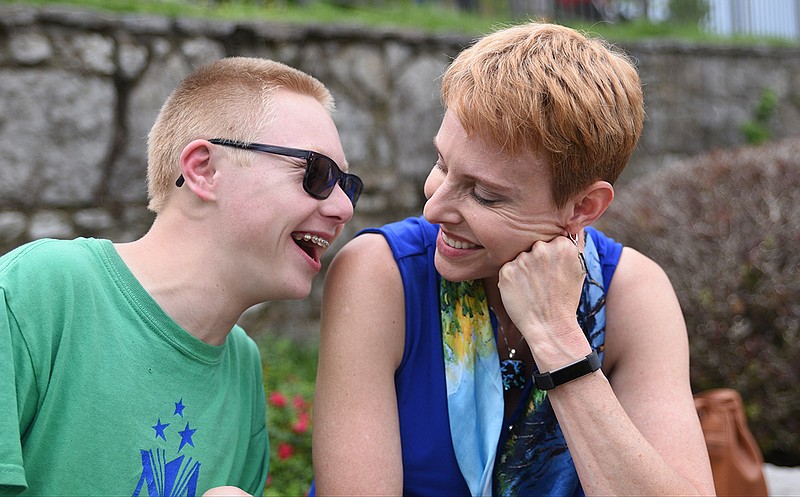The details of the specific case of Chattanooga teenager Luka Hyde aside, we hope the student disability rights ruling Monday by the 6th Circuit of Appeals doesn't cause more problems than it solves.
In short, the ruling said the Hamilton County Department of Education erred when it placed the then-second grader, who has Down syndrome, in a comprehensive development classroom in 2013.
More than a year ago in Chattanooga, U.S. District Judge Curtis Collier ruled that the Department of Education violated both the Americans with Disabilities Act and Section 504 of the Rehabilitation Act, which prohibits discrimination against people with disabilities in programs that receive federal financial assistance, when it removed Luka from a full-time classroom at Normal Park Elementary School.
We say we prefer to put the young man's case aside because every case of a child with intellectual disabilities is different. What was right for him at the time may not have been right for the next child, and vice versa.
How public schools educate children with intellectual disabilities has been a moving target for the past half century. Not so many years ago, they didn't attend public schools at all. But in 1975, Congress passed a law that children be educated in "the least restrictive environment."
The idea of "mainstreaming" came out of that law and most often means moving children with intellectual and physical disabilities out of segregated classrooms and programs and putting them in traditional classrooms. However, it also has been understood to mean that some children are better served in self-contained classrooms and programs. Further, as in the case of Luka, sometimes it means part of a day is spent in a traditional classroom and part of the day in a self-contained classroom.
More recently, the idea of "inclusion" has become more accepted. In inclusion classrooms, generally, children with disabilities are educated alongside other children, sometimes with the help of special education teachers and sometimes not.
Arriving at the exact right course of education for each child, then, becomes the issue for a fallible set of parents, teachers and other professionals who come together - armed with test results, observations and, yes, tender feelings - to decide on an Individual Education Plan (IEP).
As best we understand it, this is where the breakdown in Luka's case occurred. Teachers and administrators sincerely believed one direction was best for him, and his parents sincerely believed another was best.
We sympathize with both sides since each believed it was doing the right thing - the best thing, as their training and experiences told them - for the child.
In the last year, according to Hamilton County Department of Education attorney Scott Bennett, the local district has moved toward eliminating comprehensive development classrooms and fostering the education of students with disabilities more in inclusive traditional classrooms.
Along with that, the district is said to be working to improve communication with parents, teachers and other professionals about the issues of educating students with a spectrum of learning differences and abilities. There could be no better start than that.
Our concern, though, is for the education of individual students - with and without disabilities - in a collective classroom. As more classrooms become inclusive, we envision classroom teachers not only having to understand how best to instruct the variety of students they have but also to be adept enough to teach the students with disabilities at their various levels. Or, we see a classroom with a phalanx of additional teachers or paraprofessionals attempting to be unobtrusive while working with their individual students at the same time the classroom teacher is imparting instruction.
Either scenario asks a lot of the classroom teacher and the body of students.
For Luka and his parents, the ruling confirmed Collier's judgment but reversed him when he said the local school district was not responsible for the boy's alternative private education. Luka Hyde now attends The Montessori School, where tuition is about $17,000 per year.
We also worry that the Appeals Court ruling will be especially difficult on rural districts, which may not have money to hire the additional personnel to work in more inclusive classes, don't have teachers with the training to handle such classrooms and certainly cannot afford private school educations for students with intellectual disabilities.
We fully understand parents wanting to have their child in "the least restrictive environment" and in their zoned school, but we feel this ruling could force districts to face a faster, steeper and more expensive learning curve than is necessary. We hope we're wrong.
